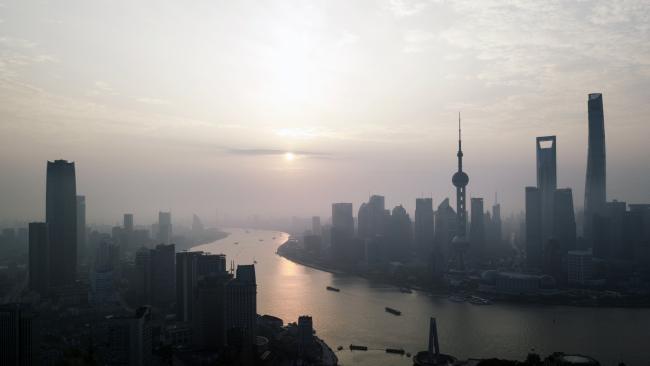(Bloomberg) -- The renaissance in volatility over the last few months has created an opportunity to buy emerging-market stocks amid prospects for further growth, according to Titus Wealth Management.
“Our savviest clients are considering the recent two-months volatility as opportunities to add to, or initiate, positions that are perceived to perform the best over the next three to five-plus years,” Eric Aanes, president and the founder of Titus Wealth, which has $500 million in assets under administration, wrote in an email interview. Emerging markets and the U.S. tech industry “are the areas that will see the greatest degree of organic growth,” he said.
The MSCI Emerging Markets Index of stocks has dropped around 9 percent from a record high reached in late January amid concern an escalation in trade friction between the U.S. and China will damp global growth. The historical volatility on the measure is near the highest level since November 2016.
Among developing nations, India stands out based on the country’s growth outlook and demographic potential, Scot Lance, Titus Wealth’s managing director, wrote in the same interview. The firm recommends investors take a “neutral stance” on Chinese stocks due to decelerating growth and an aging population, in addition to the trade war risks, he said.
Here’s what Titus Wealth, whose assets under administration have grown at almost 40 percent annually over the past three years, had to say about emerging markets:
Why is India attractive?
- India is in the midst of a bank recapitalization program to reduce bad loans. This will allow lenders to increase the flow of credit to good borrowers, which will improve sentiment locally and attract greater foreign investment
- The government last year approved a large infrastructure program to build new roads, highways and bridges, which will stimulate the economy. The young population is migrating to cities leading to greater urbanization and a rapid rise in the middle class
What’s your general view on EM assets this year?
- In the face of increasing geopolitical and trade uncertainties and amid elections in a number of developing nations, we expect emerging markets to experience increased volatility at least for the remainder of this year
- Although one country or another may be subject to risks that could slow down their economies, collectively, there seems to be very little that can derail the EM economic train in the foreseeable future
What do Trump’s tariffs mean for emerging markets?
- Tariffs don’t work. They can be used as a negotiating tactic, but it remains widely understood that they can only be negative for everybody involved over the longer term
- The reason the markets have reacted violently to tariffs is because they are a very bad idea. We don’t believe tariffs will be in place for long and therefore see the volatility and “shock and awe” tweets as opportunities to increase exposure to EM equities
What’s the biggest risk for emerging markets?
- The biggest risks to aggregate EM economic activity is the Federal Reserve raising interest rates too fast. The U.S. is still the largest single market in the world and trading partners need it to expand in order to help their own local economies grow
- But if the Fed perceives a dramatic improvement in the U.S. economy, it may move to raise rates faster. Although we don’t expect that, it could cause global economic activity to weaken, including in emerging markets
